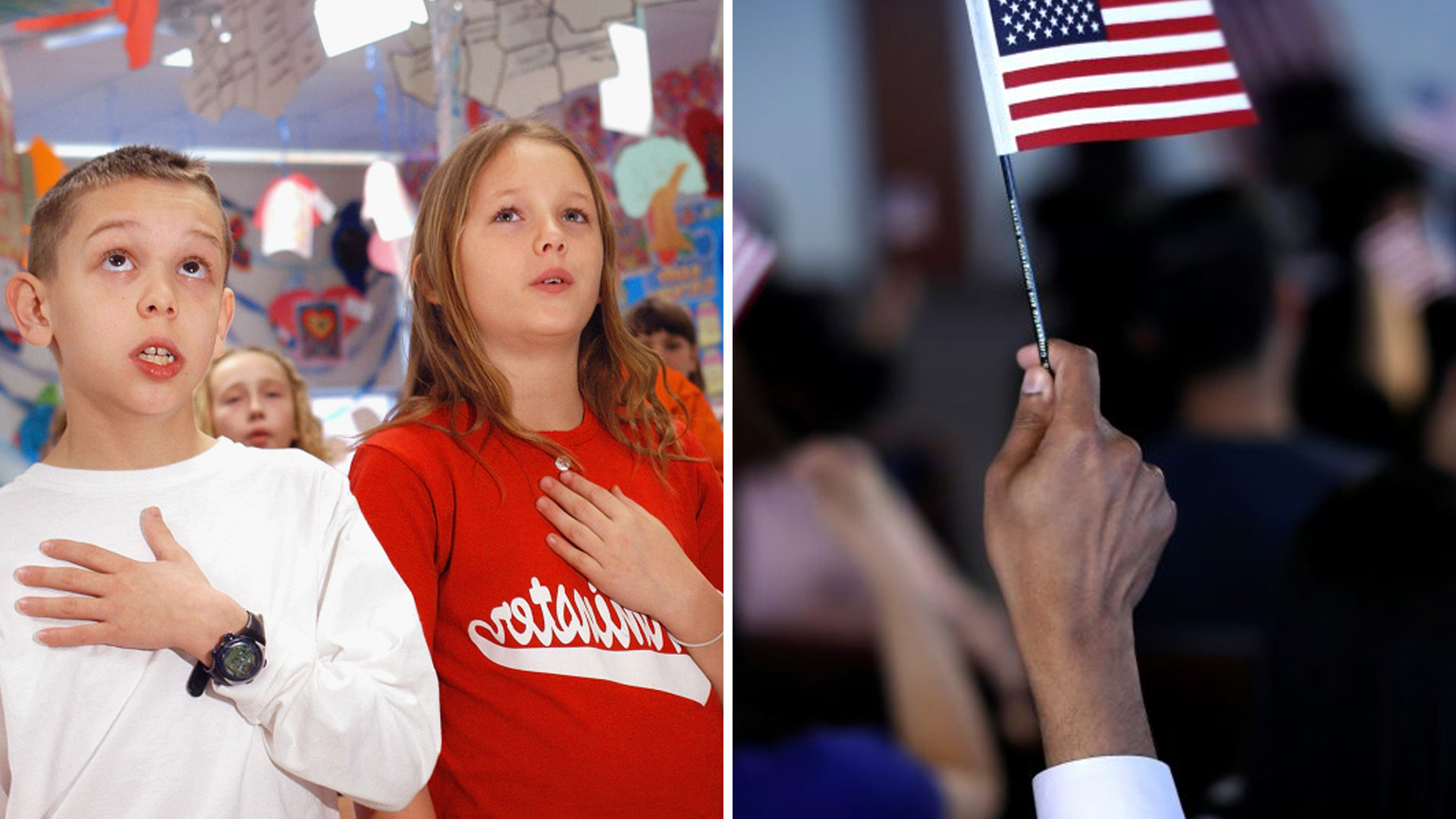In a nation as diverse and politically charged as the United States, certain traditions and practices continue to ignite fervent debate. One such tradition is the daily recitation of the Pledge of Allegiance in schools. According to a recent survey, 75% of Americans believe that school children should recite the Pledge of Allegiance. This statistic underscores a significant majority, but it also invites a deeper look into the reasons behind this support and the concerns of the remaining 25% who may view the practice differently.
The Pledge of Allegiance was first introduced in 1892, penned by Francis Bellamy, a Baptist minister and socialist. Originally crafted to foster patriotism and unity, the Pledge has undergone several changes since its inception. The most notable modification occurred in 1954, during the Cold War, when the phrase “under God” was added to distinguish the United States from atheistic communist nations.
For over a century, the Pledge has been a staple in American public schools, symbolizing national pride and a shared commitment to the values enshrined in the Constitution. However, its mandatory recitation has been the subject of legal and social controversy, particularly concerning issues of freedom of speech and religious expression.
Proponents of reciting the Pledge of Allegiance in schools argue that it serves as a daily reminder of the country’s founding principles and promotes a sense of national unity. In an era marked by political polarization and social fragmentation, advocates believe that the Pledge can play a crucial role in reinforcing a collective American identity.
Many supporters see the Pledge as a vital tool for instilling patriotism in young Americans. By reciting the Pledge, children are reminded of the sacrifices made by previous generations to secure their freedoms. This daily ritual is seen as a way to cultivate respect for the nation’s symbols and an appreciation for its democratic institutions.
The Pledge also underscores the importance of civic responsibility. Advocates argue that regular recitation fosters an understanding of the rights and duties of citizenship. By pledging allegiance to the flag, students are reminded of their role within a larger national community and the importance of contributing to the common good.
In a multicultural society, the Pledge is viewed as a unifying force that transcends individual differences. It represents a commitment to shared values such as liberty, justice, and equality. For many, this collective affirmation is essential for maintaining social cohesion and national solidarity.
Despite the strong support, a significant minority of Americans oppose the mandatory recitation of the Pledge of Allegiance in schools. Their concerns primarily revolve around issues of personal freedom, religious diversity, and the potential for coercion.
One of the principal arguments against mandatory recitation is the protection of freedom of speech. The First Amendment guarantees the right to free expression, which includes the right not to speak. Critics argue that compelling students to recite the Pledge infringes upon this fundamental freedom.
The inclusion of the phrase “under God” has been a point of contention for many Americans, particularly those from non-religious or non-Christian backgrounds. Critics contend that this phrase endorses a particular religious view, thereby alienating students who do not share this belief. They argue that public schools, as state institutions, should remain secular and inclusive of all faiths and beliefs.
There is also concern about the potential for coercion in classrooms. Critics argue that mandatory recitation places undue pressure on students to conform, which can be particularly troubling for those who hold dissenting views. The social dynamics of a classroom can make it difficult for students to opt out without facing peer pressure or feeling ostracized.
The debate over the Pledge of Allegiance has made its way through the judicial system numerous times. The landmark case of West Virginia State Board of Education v. Barnette (1943) stands as a significant Supreme Court decision, which held that students cannot be forced to recite the Pledge or salute the flag. Justice Robert H. Jackson, writing for the majority, famously stated, “If there is any fixed star in our constitutional constellation, it is that no official, high or petty, can prescribe what shall be orthodox in politics, nationalism, religion, or other matters of opinion.”
This ruling affirmed the right of individuals to refrain from participating in the Pledge based on personal beliefs. Subsequent cases have continued to uphold this principle, emphasizing the importance of protecting individual rights within the educational system.
In today’s context, the debate over the Pledge of Allegiance reflects broader societal tensions. The rise of movements advocating for racial justice, religious freedom, and LGBTQ+ rights has prompted a reexamination of many traditional practices, including the Pledge. The discussion is further complicated by the increasing political polarization in the United States, where symbols and rituals can become battlegrounds for ideological conflicts.
As the debate continues, it is crucial to find a balance that respects both the tradition of the Pledge of Allegiance and the diverse perspectives of all Americans. Schools can play a pivotal role by fostering environments that encourage critical thinking and open dialogue. Educators might approach the Pledge as an opportunity to teach students about its history, the values it represents, and the importance of individual rights.
The fact that 75% of Americans support the recitation of the Pledge of Allegiance in schools highlights a strong desire to maintain national traditions and promote unity. However, the concerns raised by the remaining 25% cannot be dismissed lightly. As a nation, the United States must navigate these complexities with sensitivity and a commitment to upholding the principles of freedom and inclusion that lie at the heart of its democracy. Whether through continued recitation or thoughtful discussion, the ultimate goal should be to educate and unite future generations in a manner that respects and celebrates the rich tapestry of American society.

